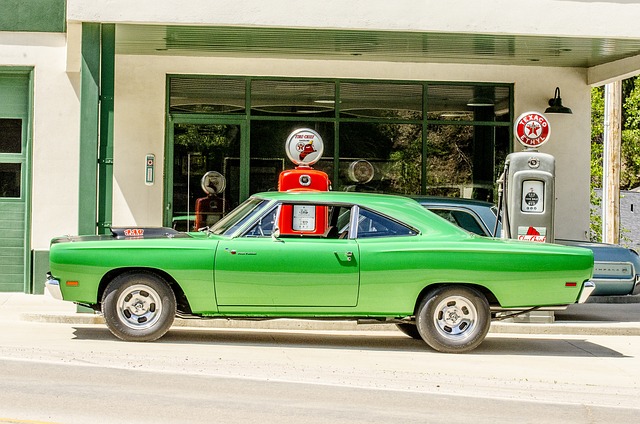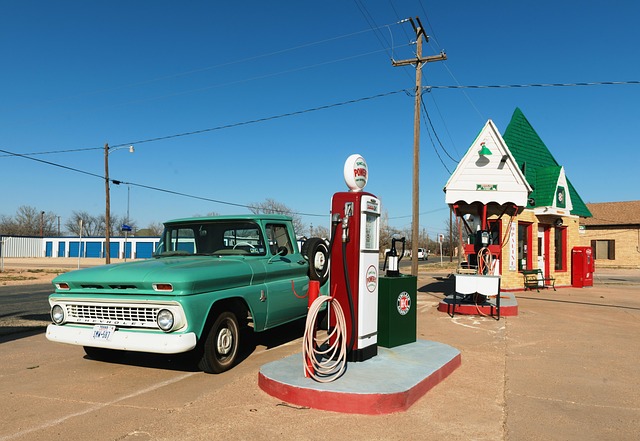Petrol cars use gasoline as fuel, ignite fuel-air mixture with spark plugs, while diesel cars use diesel fuel, igniting through compression ignition without spark plugs.
TL;DR Petrol cars Vs. Diesel cars
Petrol cars and diesel cars have their own unique characteristics and advantages. Petrol cars are known for their smoother performance, quicker acceleration, and lower initial cost. On the other hand, diesel cars offer better fuel efficiency, stronger torque output, and longer engine life.
Petrol cars

Petrol cars, also known as gasoline cars, run on a fuel mixture of gasoline and air. Internal combustion engines in petrol cars ignite this mixture using spark plugs. The controlled explosions generate power that drives the vehicle.
Petrol cars are widely popular for their smooth acceleration, versatility, and comparatively lower emissions. While advancements in technology have introduced hybrid and electric options, petrol cars remain a prevalent choice globally, offering a balance between performance, convenience, and infrastructure availability. Their widespread use contributes to a well-established support network for maintenance and refueling.
Diesel Cars

Diesel cars utilize diesel fuel, a heavier and more energy-dense liquid, in their internal combustion engines. Unlike petrol cars, diesel engines rely on compression ignition, where the air-fuel mixture ignites due to high pressure.
This process enhances fuel efficiency and torque, making diesel cars well-suited for heavy-duty applications, such as trucks and certain SUVs. While diesel cars typically achieve better fuel economy, their engines often produce higher nitrogen oxide emissions.
Advancements in emission control technologies aim to address environmental concerns associated with diesel vehicles, though electric and hybrid alternatives are gaining popularity.
Petrol cars Vs. Diesel cars – Key differences
| Criteria | Petrol Cars | Diesel Cars |
|---|---|---|
| Fuel Type | Gasoline | Diesel |
| Ignition System | Spark plugs | Compression ignition |
| Combustion Process | Ignites fuel-air mixture with spark | Ignites fuel through compression |
| Fuel Efficiency | Generally lower than diesel | Generally higher than petrol |
| Torque | Generally lower torque at lower RPMs | Higher torque at lower RPMs, better for heavy loads |
| Acceleration | Generally quicker acceleration | May have slower acceleration but better torque at low speeds |
| Emissions | Generally lower nitrogen oxide emissions | Higher nitrogen oxide emissions, but improvements with emission control technology |
| Fuel Availability | Widely available globally | Availability may vary regionally |
| Maintenance Cost | Often lower maintenance costs | Diesel engines may have higher maintenance costs |
| Initial Cost | Generally cheaper upfront | May have a higher initial purchase cost |
| Noise and Vibration | Generally quieter and smoother | May produce more noise and vibration, especially at idle |
| Environmental Impact | Lower carbon dioxide emissions, but may produce more volatile organic compounds | Lower carbon dioxide emissions, higher nitrogen oxide emissions |
Petrol cars Vs. Diesel cars – Environmental Impact
Petrol Cars:
Pros:
Lower Nitrogen Oxide Emissions:
Petrol cars generally produce lower nitrogen oxide emissions compared to diesel, contributing to improved air quality.
Lower Particulate Matter:
Petrol engines typically emit fewer particulate matter pollutants, reducing the impact on respiratory health and the environment.
Lower Carbon Monoxide Emissions:
Petrol engines emit lower levels of carbon monoxide, contributing to reduced air pollution.
Cons:
Higher Carbon Dioxide Emissions:
Petrol cars tend to emit more carbon dioxide per liter of fuel burned, contributing to greenhouse gas emissions and climate change.
Diesel Cars:
Pros:
Better Fuel Efficiency:
Diesel engines are generally more fuel-efficient, providing better mileage and reducing overall fuel consumption.
Lower Carbon Dioxide Emissions:
Diesel engines emit less carbon dioxide per unit of energy produced, contributing to lower overall carbon footprint.
Cons:
Higher Nitrogen Oxide Emissions:
Diesel cars typically produce higher levels of nitrogen oxides, contributing to air pollution and respiratory issues.
Particulate Matter Emissions:
Diesel engines emit more particulate matter, which can have adverse effects on air quality and human health.
Potential for Soot Formation:
Diesel engines may produce soot particles, contributing to air pollution and the formation of black carbon.
Note: Advances in emission control technologies for both petrol and diesel engines aim to mitigate environmental impacts. The choice between the two depends on various factors, including regional emission standards and individual preferences.
Image Credits
Featured Image By – Falkenpost from Pixabay
Image 1 By – Lisa Johnson from Pixabay
Image 2 By – Calreyn88, CC BY-SA 4.0 , via Wikimedia Commons








